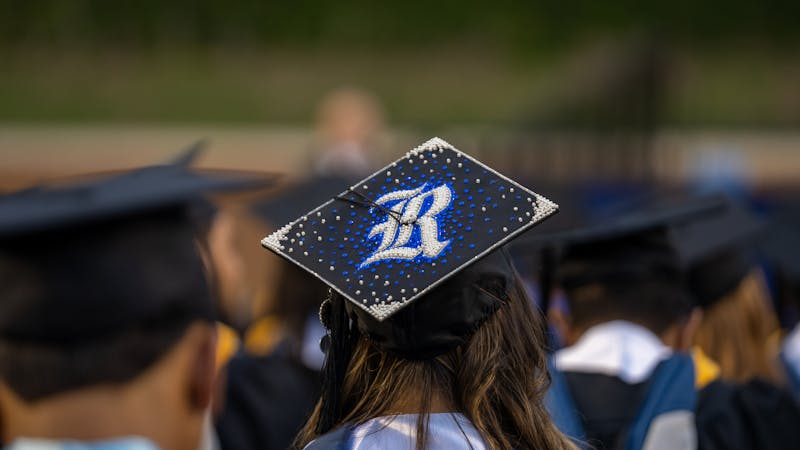Rice-Baylor merger promises unparalleled opportunities
On March 26, Rice students received an e-mail formally announcing discussions of a possible merger between the university and Baylor College of Medicine. As the Houston Chronicle noted, these were "serious discussions that could lead to a merger of the state's top private university and one of the country's best medical schools." Roughly two weeks ago, President David Leebron and BCM's Interim President William Butler issued a second e-mail detailing an extension of the initial memorandum of understanding to continue the possibility of a merger.In the intervening six months, a report on academic possibilities was released by a joint committee of Rice and BCM faculty, concluding numerous points. From a research perspective, the proposed merger offers many advantages. The Academic Committee Report highlights the potential for collaborations between BCM's pharmacology department and Rice's chemistry department, a concentration of expertise in neuroscience at both institutions and a possibility of exploring fields previously outside the scope of each individual institution. With significant public interest in national health policy and large federal investments in health information technology, there are many possibilities at the interface of engineering and healthcare beyond the capabilities of individual faculty members.
In addition to research collaboration, the merger also offers the potential for educational advancement. In certain respects, graduate education at Rice lags behind its undergraduate education. Our affiliation with BCM could segway into improved graduate education: With leading graduate programs in the biomedical sciences as well as prominent faculty in ethics, medical humanities and international health, BCM's integration with Rice would not simply expand our graduate opportunities - it would herald an exponential growth.
Last week's Thresher questioned whether or not the merger was needed for collaboration ("Concerns voiced over BCM merger," Oct. 2). Given the close relationship between Rice and Baylor, don't current and prior collaborations describe the most involvement we'll ever see?
Well, no. While we cannot predict the future, I do not believe the past can describe the full diversity of possibilities available in the future. Yes, there have been collaborations, but these projects have been the results of individual investigators seeking collaboration and advice as opposed to any institutional initiative.
What can Rice and BCM collectively do to encourage dialogue and collaboration? This is precisely the question the Academic Committee now seeks to answer, as its report presents the possibility for paid, cross-institution integration sabbaticals and innovation grants.
There are substantive questions that still need to be answered, and one of the most pressing issues is that of financial concerns. While there are certainly challenges to be addressed, they are not insurmountable. In the fiscal year 2008, Rice had an endowment worth $4.67 billion and spent $202 million of it - about 4 percent - to cover the operating costs. During that time, BCM had an endowment worth $1.09 billion and spent $59 million of it - about 5 percent - but according to statements available online, also had a $67 million deficit in fiscal year 2008. BCM has also had a budget deficit for the past five years.
Despite these vast numbers, these values are arguably nominal for institutions of such size and prestige. That year, BCM had operating costs of $1.14 billion and an operating revenue of $1.062 billion (a difference of only 6 percent). Even without Rice's involvement, there would still be quite a few years before BCM becomes insolvent.
One of the greatest potential benefits for Rice is the opportunity for an outside source of revenue, and in turn, external sustainability. Rice is currently heavily dependent upon its endowment, with investments accounting for almost 45 percent of university revenue, and could be particularly vulnerable in times of economic distress. On the other hand, only 5 percent of BCM's operating costs comes from its endowment, and even if its endowment were used to cover the budget shortfall, the operating costs would rise to only 12 percent.
In summary, Rice is neither Amherst College, a liberal arts institute lacking in graduate education, nor Washington University in St. Louis, where medical emphasis seems to overshadow undergraduate education. Rice is a truly unique institution: a small research university that is able to achieve distinction in so many disciplines. Rice will undoubtedly follow its own path and, in planning for its future, must play to its own strengths.
And one of our greatest strengths is our proximity to one of the largest medical centers in the world, and BCM.
David Ouyang is a Baker College senior.
More from The Rice Thresher

Rice’s COVID class graduates amid nation-wide campus protests
Rice held its 111th commencement ceremony Saturday, May 4 at Rice Stadium. The class of 2024 walked through the Sallyport, which is currently closed amid ongoing construction of the academic quad, but was temporarily reopened for commencement. For the second year in a row, all undergraduate commencement events were condensed into one day — prior to 2023, ceremonies were typically spread out over a two-day span.

Rice SJP ‘liberated zone’ ends, university removes artwork in ‘beautification efforts’
The “liberated zone” on Rice campus and associated events ended Friday, April 26, after four days of programming, according to the Rice Students for Justice in Palestine Instagram page. Unlike overnight encampments spreading at college campuses across the country, Rice SJP disassembled the “liberated zone” each night and returned the following morning. And in contrast to clashes and escalating police responses that have led to some 2,000 arrests from Los Angeles to Hanover, N.H., there were “no major incidents and no arrests” at Rice, according to President Reggie DesRoches.

Rice’s Luke McCaffrey selected by Commanders in NFL Draft
The Washington Commanders selected Rice wide receiver Luke McCaffrey with the 100th overall pick in the 2024 NFL Draft. McCaffrey was the final pick in the third round, as well as the final pick on the second day of the draft. He’ll compete for a prominent role in the wide receiver room, potentially slotting in as their starting slot receiver alongside Terry McLaurin and Jahan Dotson.

Please note All comments are eligible for publication by The Rice Thresher.